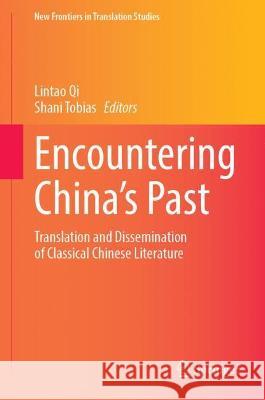Encountering China's Past: Translation and Dissemination of Classical Chinese Literature » książka
topmenu
Encountering China's Past: Translation and Dissemination of Classical Chinese Literature
ISBN-13: 9789811906473 / Angielski / Twarda / 2022 / 296 str.
Encountering China's Past: Translation and Dissemination of Classical Chinese Literature
ISBN-13: 9789811906473 / Angielski / Twarda / 2022 / 296 str.
cena 645,58
(netto: 614,84 VAT: 5%)
Najniższa cena z 30 dni: 578,30
(netto: 614,84 VAT: 5%)
Najniższa cena z 30 dni: 578,30
Termin realizacji zamówienia:
ok. 16-18 dni roboczych.
ok. 16-18 dni roboczych.
Darmowa dostawa!
Kategorie:
Kategorie BISAC:
Wydawca:
Springer
Język:
Angielski
ISBN-13:
9789811906473
Rok wydania:
2022
Ilość stron:
296
Waga:
0.59 kg
Wymiary:
23.39 x 15.6 x 1.75
Oprawa:
Twarda
Wolumenów:
01
Dodatkowe informacje:
Wydanie ilustrowane











